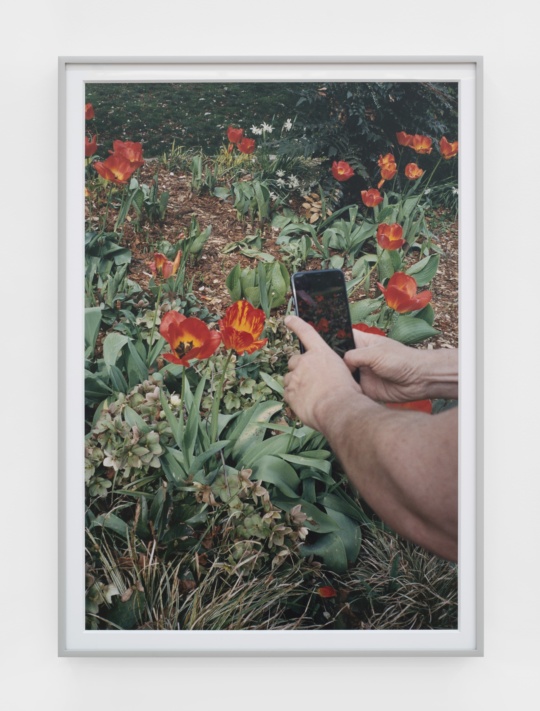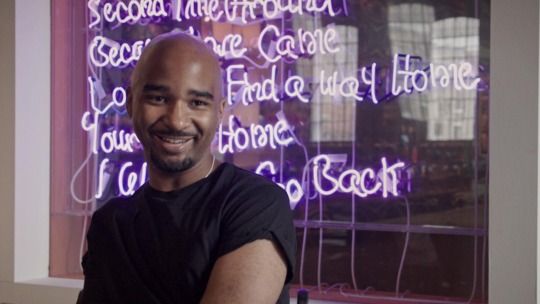
For your summer reading pleasure, BURNAWAY brings you Just Like Suicide, a novel by artist Mery Lynn McCorkle, set in the Los Angeles art world. She writes from experience, having lived for years in Williamsburg, Brooklyn, when it still was the art frontier, and then LA; she now resides in Rome, Georgia. She describes the book as “a compendium of interlocking tales cataloguing self demolition and success in the Los Angeles art scene, from the point of view of artists, dealers and family members.”
We’ll post sequential chapters from McCorkle’s book every Wednesday and Friday over the summer. Or click here to buy the book now.
Twenty One
The house was perched at the tip top of a twisted, narrow street lined with leaning cypress trees. “Perched” is the first term that came to mind because of the stilts conspicuously holding it up, because of the sheer drop down. Looking over the edge from the outdoor parking area was just asking for vertigo. Anyone who peeked over could see the erosion at the base of the pylons from the last torrential rain. This house would not be here in a century.
Leave it to Roger Trumbell to locate a long, leaning concrete behemoth at the very edge of a precipice, defying gravity, ignoring nature. The house looked hunkered down, like it was waiting for any excuse to take a tumble down the hill.
Installing art work in a home is similar to cleaning a house: those who do either job are simultaneously invisible and invasive. Odessa generally didn’t like to do it, always suggesting others to do the job. When Doris Cotter requested her assistance, however, Odessa felt she had to do it herself and brought Maggie, in case anything heavy needed moving.
Doris was one of those unfailingly nice people, always ready to smile and say something sweet. Odessa actually found the sweetness almost unbearable, like four heaping scoops of sugar in a cup of tepid tea. Dennis, though, had really liked her and Doris thought the world of Dennis. Dennis would have wanted her to do this herself.
Unlike Roger’s home which was stripped bare of all decoration, this one was full of plush furniture, walls of art work, massive plants in painted ceramic pots, and hand woven carpets in shades of red and orange. The windows had no curtains or blinds. Instead, Doris had arranged an assortment of tall screens – some in classic Japanese floral motifs, some very Art Nouveau with stylized curls and arabesques around the contours of slender young women with long noses – all lined up to soften the intense light screaming through the windows. Maggie told Doris that this was the perfect room for reading.
Doris took her hand and squeezed it. “How lucky for you: you have Dennis’ smile. My dear, if you like to read, then I have something to show you.” Still clasping her hand, Doris, in a wheelchair pushed by a big woman with wild loose hair, rolled down the hallway. She had lost a lot of weight since the last time Odessa had seen her, making the wide smile, those lips always painted a dark pink, look completely out of proportion with the remains of her face.
Doris and the nurse escorted them to a small, tall room filled floor to ceiling with mahogany book cases crammed, jam-packed with books. A few of them were leather bound but all of them looked well read. The window, though, commanded the room. The view from the window rivaled any Renaissance landscape scene – the elevated vantage point, the layers of olive greens followed by ever more translucent blues and the ridges of mountains through the haze of low clouds. A classic demonstration of atmospheric perspective. The only place to sit in the room was the built-in couch under the window. Maybe it was worth the risk of the house tumbling down the hill to spend time cozied up to that window.
As they stood there admiring the view, Doris suddenly slumped in the wheelchair, the smile flickering. Always polite, she begged their forgiveness and excused herself. The big woman rolled her away, leaving Odessa and Maggie following them out to the hallway, not sure quite what to do. The nurse eventually came back and guided them to a “boudoir” with an empty wall for the new work to be installed.
Maggie pulled out the laser level and quickly hung the paintings while Odessa decided which piece went where. It took next to no time. They were all the same size, all hung in a neat row. As Maggie packed up the tools, Odessa stood back and took a last look at the paintings, glad she had finally convinced the crazy old man to stop blocking the sale, glad that she had installed them today and not next week. That might well have been too late for Doris to enjoy them.




